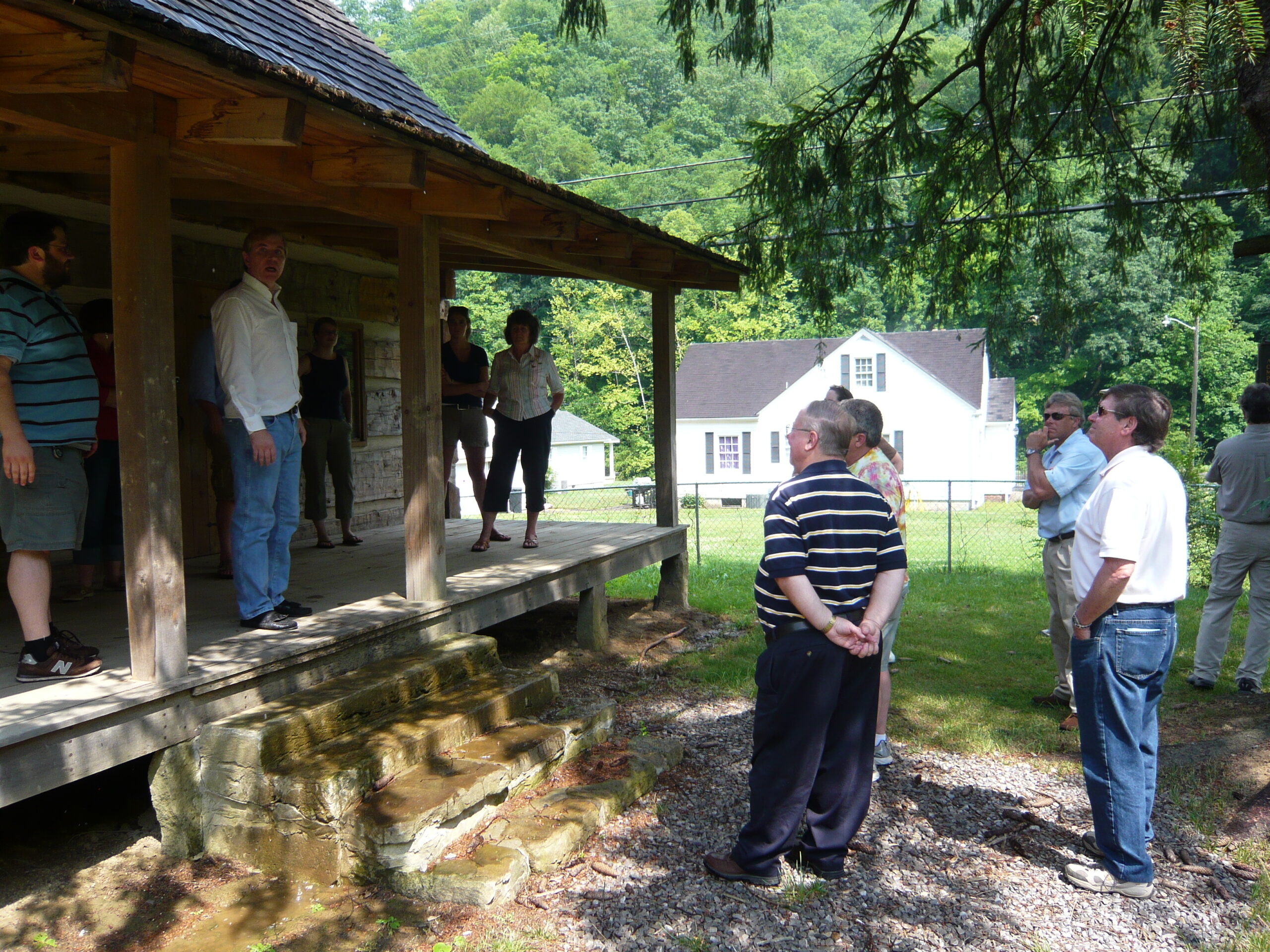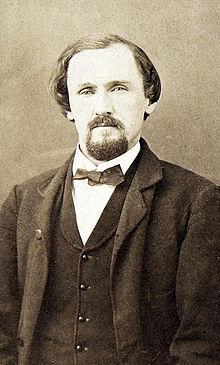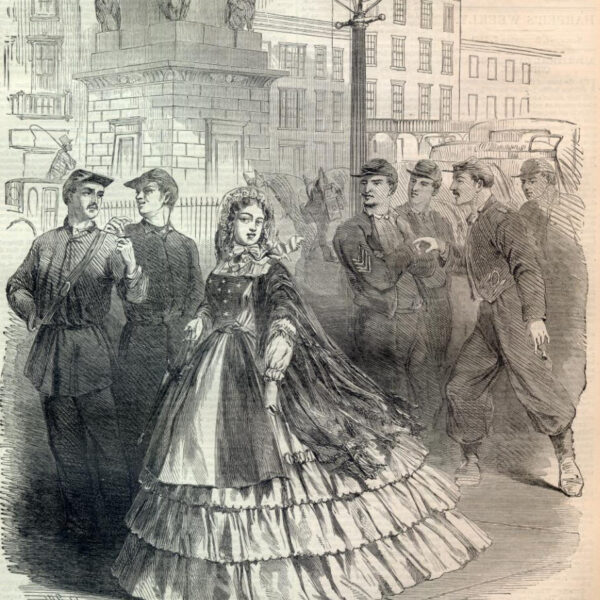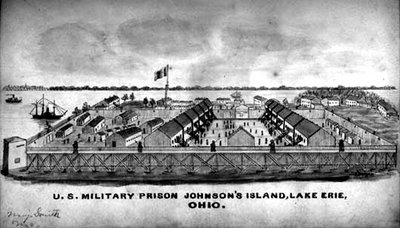
“What caused the Civil War?” Historians have killed forests trying to answer this deceptively simple question. In a recent essay in The Journal of the Civil War Era, Frank Towers discusses changing interpretations over the last 150 years, finding that starting in the 1960s historians “foregrounded slavery as the war’s cause, situated within a global process of modernization.” And while disagreements continue over how and why, most historians now agree that slavery caused the Civil War.
Why then do so many outside of academia continue to believe that slavery either had little or nothing to do with the conflict? There are certainly some people who will never accept that slavery was central to the Civil War. Eight years of teaching as a professor in East Tennessee, though, has convinced me that those are the exceptions. I think much of the resistance to accepting slavery as the war’s cause comes from how it is explained to students and the public.
For several years now, I have taught institutes on the Civil War for middle and high school teachers in northeast Tennessee as part of a Teaching American History grant. Teaching teachers is quite different than working with college students, as many have master’s degrees and have been teaching American history for decades. They are on the front lines of education and will each educate several thousand students over the course of their careers. In one session, I started with the question, “What caused the Civil War?” The response from most was slavery, but they did not seem entirely convinced or happy about it. The teachers viewed slavery as almost entirely a moral issue, an issue that simultaneously damns the South and completely fails to account for other factors leading to the war. Teachers knew the answer, yes, but they did not know all the complexity behind it.
For academic historians, of course, slavery connotes a wide range of social, economic, political, and gender issues. Historians have done sophisticated theoretical work on the role of slavery in southern society, yet none of the teachers were familiar with concepts like Herenvolk democracy, paternalism or bourgeois gender ideology. The teachers were also unfamiliar with reasons non-abolitionists in the North would oppose slavery. None saw slavery “situated within a global context of modernization.” This is not to disparage K-12 teachers—far from it. Most scholars know nothing about teaching students with a fifth grade reading level, dealing with discipline problems or coaching football. Crunched for time, overwhelmed by state standards, and lacking resources, it’s impressive that teachers accomplish all that they do. Popular Civil War works like Ken Burns’ documentary and James McPherson’s Battle Cry of Freedom emphasize slavery as a moral issue, not to mention the textbooks in the public schools. The fact is that when these teachers—and maybe most people—hear that slavery was the cause of the Civil War, it is primarily as a moral issue, uncomplicated by the debates of academic historians.
Not only does viewing slavery primarily as a moral issue skew interpretations of Civil War causation, but it also presents a particular challenge in the South. Most of these teachers come from the area and identify themselves as southerners. In perhaps a positive sign of the Lost Cause ideology weakening, all the teachers agree that slavery is bad and that African Americans did not want to be enslaved. The problem is that the teachers understandably feel like their ancestors and their region are being judged and found wanting. It is difficult to teach anyone if they feel judged and defensive.
In order to connect with my audience of teachers, I focus on multiple aspects of slavery’s role as a cause of the war. The first was why non-slave owning whites might be interested in protecting slavery. We discussed concepts like Herenvolk democracy (where the use of race enabled non-elite whites to participate in the political process), though not always using the theoretical terms. One particularly effective point was the effect of kin relations. The teachers knew that a minority of whites in the South owned slaves, but once they started to think of extended kin networks that are still so important in East Tennessee they quickly saw how a lot of people had an interest in slavery. The second, and perhaps the most important point, was repeatedly stating that the vast majority of white northerners were racist and not anti-slavery for altruistic motives. I explained that ideas like free soil and the slave power led many northern whites to oppose slavery—or at least its expansion—to protect their own political liberties and economic opportunities. Afterward, many of the teachers came up to me and used almost the exact same words: “I never had slavery explained as a cause of the Civil War like that. It makes a lot of sense.” Another, in one of the anonymous evaluations we collected at the end of the institute, noted that what he or she liked best was learning “Slavery being true cause of the Civil War—information we received were things I didn’t know!”
After analyzing new directions in Civil War causation scholarship in his article in The Journal of the Civil War Era, historian Frank Towers argues that “Debunking neo-Confederate myths of the Lost Cause falsehoods is a shared task of this scholarship, but it goes far beyond reiterating historians’ long running proof for the primacy of slavery in secession.” While Towers is undoubtedly right, it seems problematic that, despite historians’ consistent cries that slavery caused the Civil War, parts of the American public continue to cling to the belief that it did not. Maybe the problem rests not the public, but with academic historians who aren’t doing the right things to reach the public.
When I started teaching at East Tennessee State University I could not have convinced the teachers here that slavery caused the Civil War. Through years of talking (and listening!) to teachers, having meals together, and getting to know the region, I have learned how to discuss history in ways that work here. We need more teachers and historians meeting for coffee and discussing deceptively simple questions like “what caused the Civil War.” When historians better know their audience, they—we—will be better able to explain how slavery caused the Civil War in a way that is understandable, and acceptable, to the public.
Andrew L. Slap is an associate professor of history at East Tennessee State University and has been the academic director of a Teaching American History grant since 2005. He is the author of The Doom of Reconstruction: The Liberal Republican Movement in the Civil War Era and is currently working on a book about African American communities around Memphis during the 19th century.
Related topics: slavery




